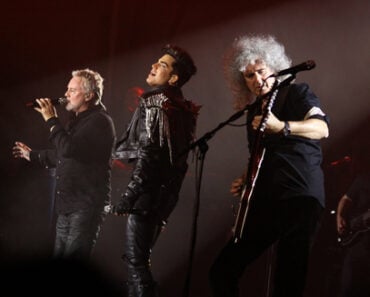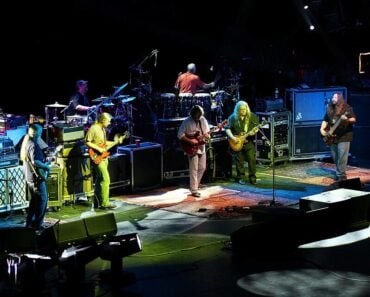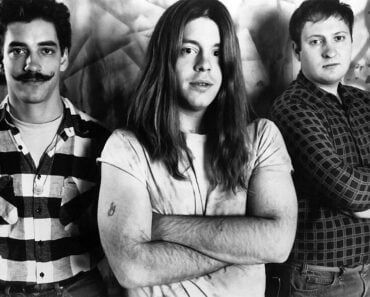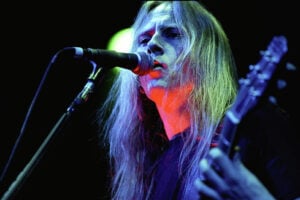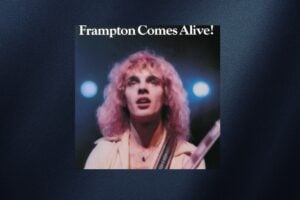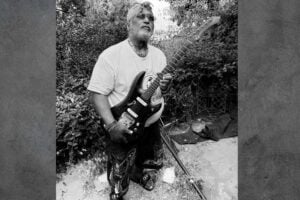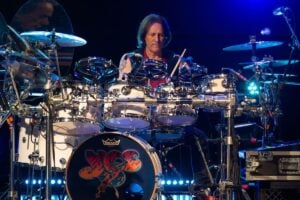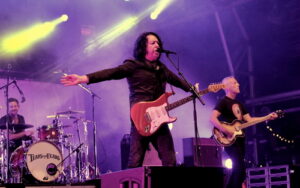
Feature Photo: DFP Photographic / Shutterstock.com
Born from a fusion of psychological theory and synth-pop ambition, the story of Tears for Fears is ultimately a story of its personnel. The band’s creative engine has always been the potent, often volatile, partnership of its two founders, but its journey has been shaped, enriched, and at times saved by the remarkable cast of musicians who have entered their orbit. Formed in Bath, Somerset, England, in 1981 by Roland Orzabal and Curt Smith, the duo emerged from the ashes of their mod-revival band, Graduate, and a brief stint as session players for a group called Neon, where they first encountered future drummer Manny Elias. Rejecting the standard band format, they drew inspiration from the writings of American psychologist Arthur Janov, whose primal therapy gave them their name and the thematic core for their early work. Their initial concept was to operate as a central duo, bringing in other musicians to complete their sonic vision, a model that would define their entire career.
This unique foundation propelled them to immediate and immense success. Their 1983 debut album, The Hurting, a moody and introspective exploration of childhood trauma, defied pop conventions to reach number one on the UK Albums Chart, propelled by a trio of top-five singles: “Mad World,” “Change,” and “Pale Shelter.” Rather than replicate this formula, they pivoted dramatically for their 1985 follow-up, Songs from the Big Chair. This album was a global phenomenon, an anthemic and expansive rock record that conquered the United States, hitting number one on the Billboard 200 and producing two chart-topping singles, “Everybody Wants to Rule the World” and “Shout”. Their restless creativity led to another transformation with 1989’s The Seeds of Love, a complex, soul-infused, and Beatles-esque opus that also topped the UK charts and delivered the transatlantic hit “Sowing the Seeds of Love”.
The intense pressure and perfectionism that fueled this success ultimately led to the band’s fracture. Following an acrimonious split in 1991, Orzabal carried the Tears for Fears name forward as a solo endeavor, releasing the albums Elemental (1993) and Raoul and the Kings of Spain (1995). A decade of distance allowed for a reconciliation, and the duo reunited in 2000, releasing Everybody Loves a Happy Ending in 2004. Their modern resurgence was cemented with 2022’s The Tipping Point, their seventh studio album and their most critically and commercially successful release in three decades. This enduring career, marked by seven studio albums, multiple Brit Awards, and the prestigious Ivor Novello Award for an ‘Outstanding Song Collection’ in 2021, is a testament to the creative nucleus of Orzabal and Smith and the vital contributions of the musicians who have joined them along the way.
Roland Orzabal
As the co-founder, main songwriter, guitarist, and co-lead vocalist, Roland Orzabal is the sole constant member and primary architect of Tears for Fears. His presence spans the band’s entire history, from its 1981 inception to the present day, and his name is credited on all seven of their studio albums: The Hurting (1983), Songs from the Big Chair (1985), The Seeds of Love (1989), Elemental (1993), Raoul and the Kings of Spain (1995), Everybody Loves a Happy Ending (2004), and The Tipping Point (2022). Orzabal’s role as the group’s chief creative force cannot be overstated; he has written or co-written the vast majority of the band’s catalog, including their most iconic and complex works. His intellectual curiosity and relentless perfectionism have been the driving forces behind the band’s dramatic sonic shifts, from the synth-pop of their debut to the stadium rock of their sophomore effort and the psychedelic soul of their third album.
During the period of the band’s split from 1991 to 2000, Orzabal became the sole custodian of the Tears for Fears name. The albums Elemental and Raoul and the Kings of Spain were, for all intents and purposes, solo projects released under the established banner. While Elemental produced the international hit “Break It Down Again,” these albums were musically dense and intensely personal, reflecting Orzabal’s undiluted artistic vision. This period highlighted a crucial dynamic within the band: while Orzabal could construct the intricate musical machinery on his own, the output resonated most powerfully on a global scale when balanced by the collaborative presence of Curt Smith. The solo TFF years demonstrated that Orzabal was the unquestionable architect, but the machine he built was most effective with its ghost.
Beyond his work within Tears for Fears, Orzabal has cultivated a significant career as a producer and solo artist. In 2001, he released his only official solo album, Tomcats Screaming Outside, a project that explored electronic textures and complex arrangements. However, his most profound impact outside the band came from his work as a producer and talent scout. He and Smith famously discovered singer Oleta Adams performing in a hotel bar and, recognizing her immense talent, featured her prominently on The Seeds of Love. Orzabal then took a pivotal role in launching her solo career, co-producing her 1990 debut album Circle of One, which became a platinum-selling, number-one hit in the UK. This act showcased his exceptional ear for talent and production, proving his musical influence extended far beyond his own songwriting. His work has been recognized with three prestigious Ivor Novello Awards, including the coveted “Songwriter of the Year” award in 1986.
Curt Smith
As the co-founder, bassist, and co-lead vocalist, Curt Smith represents the emotional and melodic heart of Tears for Fears. His tenure with the band is divided into two distinct periods: from its formation in 1981 until his departure in 1991, and from his celebrated return in 2000 to the present day. He has performed on five of the band’s seven studio albums: The Hurting, Songs from the Big Chair, The Seeds of Love, Everybody Loves a Happy Ending, and The Tipping Point. Smith’s clear, emotive voice delivered some of the band’s most enduring and accessible early hits, including the globally recognized “Mad World,” “Pale Shelter,” “Change,” and the band’s first US number one, “Everybody Wants to Rule the World.” He serves as the essential counterweight to Orzabal’s often complex and cerebral lyrical style, translating intricate psychological themes into universally resonant pop moments.
The strain of global fame and the notoriously difficult, protracted recording sessions for The Seeds of Love led to growing personal and creative conflicts with Orzabal, culminating in Smith’s departure in 1991. Citing “pure unhappiness” and a desire to escape the pressures of the music industry, he relocated to New York and embarked on a solo career. This period of his life was defined by a search for a healthier balance between his art and his personal life. He released his first solo album, Soul on Board, in 1993, followed by work with his own band, Mayfield, and subsequent solo albums including Aeroplane (1999), the semi-autobiographical Halfway, Pleased (2008), and Deceptively Heavy (2013). These projects were more intimate and released on his own terms, often through his own label, demonstrating a clear preference for creative freedom over commercial pressure.
The eventual reunion with Orzabal in 2000 was predicated on mending their personal relationship, which had been severed for nearly a decade. Their first album back together, Everybody Loves a Happy Ending, was a testament to this reconciliation. Smith’s return restored the fundamental dynamic that had defined their greatest successes. While Orzabal is the primary composer of the band’s complex musical landscapes, Smith is the crucial emotional anchor. His melodic sensibilities and direct vocal delivery provide the accessibility and heart that connect the band’s ambitious ideas with a mass audience. His career path illustrates a consistent desire for a life beyond the band, a stark contrast to Orzabal’s all-consuming artistic drive in their early years, and it is this very difference that makes their partnership so compelling and creatively fruitful.
Manny Elias
Manny Elias was the original drummer for Tears for Fears, providing the rhythmic backbone for the band’s formative years from 1981 to 1986. He was considered an official and integral member of the group, not just a hired musician, and was credited as such on their first two landmark albums, The Hurting and Songs from the Big Chair. Elias first connected with Roland Orzabal and Curt Smith when they were all working as session musicians in the Bath-based band Neon, prior to the formation of Tears for Fears. His contribution went beyond drumming; he was also involved in the creative process, earning co-writing credits on the 1983 non-album single “The Way You Are” and the atmospheric Songs from the Big Chair track “The Working Hour,” showcasing the collaborative, band-like dynamic of the group’s early incarnation.
Elias’s departure from the band in 1986, following the extensive world tour for Songs from the Big Chair, marked a significant turning point in the band’s operational structure. His exit signaled the end of Tears for Fears as a conventional four-piece band and the beginning of its evolution into the duo-centric, project-based entity it would become for The Seeds of Love and beyond. For that album, the band eschewed a permanent drummer in favor of a roster of high-profile session players, including Phil Collins and Manu Katché, a clear shift in creative strategy. This deconstruction of the traditional band lineup consolidated creative control under Orzabal and Smith, a move that would ultimately pave the way for Orzabal’s later period of sole leadership.
After parting ways with Tears for Fears, Manny Elias established a successful and respected career as a session drummer. His powerful and versatile style was sought after by a wide range of prominent artists. He contributed his talents to albums by Peter Gabriel, Julian Lennon, Peter Hammill, and Joni Mitchell, among others. In the early 1990s, he was also a member of the band The Believers, demonstrating his continued desire to work within a collaborative group setting.
Ian Stanley
Ian Stanley was the keyboardist for Tears for Fears from 1981 to 1987 and stands as one of the most crucial creative forces in the band’s history outside of its two founders. His involvement was pivotal from the very beginning; he offered the fledgling duo free use of his home 8-track studio, which is where their first demos were recorded, leading directly to their record deal with Mercury. Like Manny Elias, Stanley was credited as an official member on the first two albums, The Hurting and Songs from the Big Chair, and he made significant contributions to The Seeds of Love before his departure. His role, however, extended far beyond that of a typical keyboard player. He was a key songwriter and co-producer, and his influence is deeply embedded in the DNA of the band’s most successful work.
Stanley’s creative partnership with Roland Orzabal was particularly fruitful during the making of Songs from the Big Chair. He holds co-writing credits on some of the band’s most famous and musically ambitious songs, including the global hits “Shout” and “Everybody Wants to Rule the World,” as well as “Mothers Talk”. Orzabal himself has described Stanley as a “huge bridge” between the artists and the producer, highlighting his essential role in translating complex ideas into polished, finished tracks. He was, in effect, the unsung architect of the Big Chair sound, providing the technological expertise and creative input that helped shape the album’s grand, anthemic scope.
Stanley left the band during the early, turbulent sessions for The Seeds of Love, citing creative differences and a feeling that Orzabal was “accelerating away” from the rest of the band in his artistic ambitions. His departure created a significant creative and logistical void. The subsequent recording process for the album became notoriously long, complex, and expensive, a fact that suggests Stanley’s role in streamlining the creative process on the previous album had been immense. His absence placed the full weight of production and arrangement on Orzabal’s shoulders, contributing to the pressures that would eventually lead to the band’s split. After leaving Tears for Fears, Stanley became a highly successful and sought-after record producer, lending his talents to a diverse array of artists including a-ha, The Pretenders, Natalie Imbruglia, The Human League, and Tori Amos.
Oleta Adams
American singer and pianist Oleta Adams was not just a collaborator with Tears for Fears; she was the catalyst for one of their most profound artistic reinventions. Her discovery by the band was a moment of pure serendipity. In 1985, while on tour for Songs from the Big Chair, Roland Orzabal and Curt Smith heard her performing at a hotel bar in Kansas City. They were so captivated by her powerful, gospel-infused voice that they invited her to work on their next album. This encounter directly triggered the band’s shift away from the anthemic synth-rock of Big Chair and toward the sophisticated, deeply soulful sound that would define The Seeds of Love.
Released in 1989, The Seeds of Love featured Adams prominently. Her most notable contribution was the stunning duet she performed with Orzabal on the hit single “Woman in Chains,” a song that became one of the album’s emotional centerpieces. She also lent her voice and piano skills to other tracks, such as the sprawling “Badman’s Song,” becoming an integral part of the album’s rich, layered soundscape. Her involvement continued as she joined the band for their 1990 world tour, serving as both the opening act and a key member of the touring ensemble, providing vocals and piano throughout the main set.
The global exposure Adams received with Tears for Fears served as a launchpad for her own highly successful solo career. With Orzabal’s enthusiastic support, she signed with the band’s label, and Orzabal co-produced her 1990 debut solo album, Circle of One. The album was a massive success, reaching number one in the UK and achieving platinum status. It spawned her signature song, a cover of Brenda Russell’s “Get Here,” which became a top-five transatlantic hit and an unofficial anthem during the 1991 Gulf War. Adams later reunited with the band to provide vocals on the track “Me and My Big Ideas” from the 1995 album Raoul and the Kings of Spain, cementing her place as one of the most significant and influential collaborators in the band’s history.
Gail Ann Dorsey
The acclaimed American bassist and vocalist Gail Ann Dorsey played an essential role during a critical transitional period for Tears for Fears. She was a core member of the touring and recording band from 1993 to 1996, the era when Roland Orzabal was leading the group as a solo project following Curt Smith’s departure. Dorsey’s immense talent and artistic credibility were vital in allowing the Tears for Fears name to continue with integrity. She provided both bass and vocals on the albums Elemental (1993) and Raoul and the Kings of Spain (1995), effectively filling the void left by Smith. Her presence provided Orzabal with a world-class, charismatic musical partner who could stand shoulder-to-shoulder with him on stage.
During the extensive tour for the Elemental album, Dorsey’s role was particularly prominent. She not only anchored the rhythm section with her fluid and powerful bass playing but also took on lead vocal duties for an early live version of the song “Size of Sorrow”. This track would later be officially recorded with Curt Smith singing the lead vocal on the 2004 reunion album Everybody Loves a Happy Ending, but Dorsey’s early interpretation showcased her ability to step into a principal vocal role within the band’s repertoire. Her contributions during this period were crucial for the artistic and commercial viability of Orzabal’s solo incarnation of the band, preventing it from being perceived as a mere vanity project.
Gail Ann Dorsey is a celebrated and highly respected musician in her own right, with a career that extends far beyond her work with Tears for Fears. She had already released solo albums, including The Corporate World (1988) and Rude Blue (1992), before joining the group. Her most famous and long-standing collaboration began in 1995 when she became the bassist for David Bowie, a position she held until his final tour in 2004. Her tenure with Bowie is legendary, highlighted by her iconic live performances of “Under Pressure,” where she flawlessly sang Freddie Mercury’s demanding vocal parts. Her association with an artist of Bowie’s stature lent significant artistic weight to the Tears for Fears project she was part of, solidifying her reputation as one of the preeminent session and touring musicians of her generation.
Charlton Pettus
Guitarist, producer, and songwriter Charlton Pettus has been a vital, long-term collaborator for Tears for Fears, acting as the indispensable creative and personal bridge between Roland Orzabal and Curt Smith in the modern era. His involvement began in the late 1990s, not with the band as a whole, but with Curt Smith’s post-departure project, Mayfield, where he and Smith established a close working relationship. When Orzabal and Smith decided to reconcile and work together again in 2000, Pettus was brought into the fold as a trusted third party, respected by both members. He became the essential third man in the room, helping to navigate their renewed partnership.
Pettus played a crucial role in the creation of the band’s 2004 reunion album, Everybody Loves a Happy Ending, earning co-producing and co-writing credits on much of the record. His ability to mediate and contribute creatively was instrumental in the album’s success. His importance grew even more profound during the making of their 2022 comeback album, The Tipping Point. After initial sessions with outside “hitmaker” producers proved fruitless and frustrating, the band regrouped with Pettus, who was central to crafting the final, critically acclaimed version of the album. He received numerous co-writing and production credits on key tracks, including the powerful title song, the feminist anthem “Break the Man,” and the haunting “Long, Long, Long Time”.
In the 21st-century incarnation of Tears for Fears, Charlton Pettus fulfills a role analogous to the one Ian Stanley held in the 1980s. He is the collaborator who helps translate the individual ideas of Orzabal and Smith into a cohesive and functional whole. He is also a core member of the modern Tears for Fears touring band, providing guitar and backing vocals and bringing the new material he helped create to life on stage. His long-standing relationship with both founders has been a key factor in the stability and creative resurgence of the band in its mature phase.
Jamie Wollam
Jamie Wollam has been the drummer for Tears for Fears since 2010, a tenure that makes him the longest-serving drummer in the band’s entire history. His presence has brought a level of stability and consistency to the rhythm section that was absent for much of the band’s career following the departure of Manny Elias in 1986. A graduate of the prestigious Percussion Institute of Technology (PIT) in Hollywood, Wollam is a highly skilled and versatile musician with a prolific career as a touring and session drummer for a host of high-profile artists. His impressive resume includes work with rock and folk legends like Jackson Browne and David Crosby, as well as members of rock royalty such as Tommy Shaw of Styx and Tom Morello of Rage Against the Machine for his solo project, The Nightwatchman.
Wollam’s powerful and precise drumming is a cornerstone of the modern Tears for Fears sound, both live and in the studio. He is the drummer featured on the band’s critically acclaimed 2022 comeback album, The Tipping Point, providing the rhythmic foundation for the record’s diverse collection of songs. As a fixture of their current live shows, his ability to navigate the band’s extensive and varied catalog—from the intricate synth-pop rhythms of The Hurting to the powerful rock anthems of Songs from the Big Chair—is a testament to his skill and adaptability. His long-term commitment has been a key component in creating the well-oiled, professional, and powerful live unit that the band is today, signifying a mature and stable phase in their ongoing journey.
Doug Petty
Doug Petty is the current keyboard player for the modern Tears for Fears touring band and a highly respected musician and educator in his own right. A graduate of the esteemed Eastman School of Music, where he studied piano performance and arranging, Petty is a top-tier session player based in Los Angeles. His extensive list of credits is a testament to his versatility and talent, having recorded and performed with a vast array of major international artists across numerous genres. His collaborators include pop superstars like Rihanna, Celine Dion, and Britney Spears, as well as celebrated singer-songwriters such as Roseanne Cash and Shawn Colvin. In addition to his busy recording and touring schedule, Petty is also a faculty member at the University of Southern California’s Thornton School of Music, where he teaches in the Music Technology and Popular Music programs.
Petty’s role within Tears for Fears extends beyond that of a live performer. In a move that signals the collaborative spirit of the band’s modern era, he earned a co-writing credit on their 2022 album, The Tipping Point. He is credited alongside Roland Orzabal and Charlton Pettus on the album’s moving, gospel-tinged closing prayer, “Rivers of Mercy”. This contribution is significant, as songwriting credits for touring members have been rare throughout the band’s history, particularly after the departure of the original four-piece lineup in the mid-1980s. Petty’s credit demonstrates that Orzabal and Smith are now more open to incorporating the creative ideas of their touring musicians into their official studio work, treating them less as hired hands and more as true musical partners in a healthier and more creative band environment.
Carina Round
English singer-songwriter Carina Round is a key member of the current Tears for Fears touring band, providing essential backing vocals and serving as a powerful stage presence. She has been touring with the band since 2016, and her most significant role during live performances is singing the iconic female vocal part on “Woman in Chains”. In this capacity, she steps into the formidable shoes of Oleta Adams, delivering the song’s powerful emotional weight with her own distinct and acclaimed voice. Round also contributed her vocal talents to the band’s 2022 studio album, The Tipping Point, providing backing vocals on several tracks and further integrating her sound into the band’s modern fabric.
Round’s inclusion in the Tears for Fears lineup is particularly noteworthy because she is a critically acclaimed and respected artist in her own right, with a successful independent solo career and a prominent role in other projects. She is widely known as a member of the art-rock band Puscifer, the eclectic musical collective led by Maynard James Keenan of Tool. Her own music occupies a space in the alternative and indie rock worlds, making her presence in the TFF lineup a powerful co-sign of the band’s enduring influence and relevance.
The addition of an artist with Round’s contemporary credibility acts as a bridge, connecting the legacy of Tears for Fears to a modern, active musical landscape. It demonstrates that the band is not merely a legacy act trading on past glories but a vital entity respected by current artists from different genres. Her presence enhances the band’s cultural currency, appealing to a broader audience and proving that the quality of their music continues to attract top-tier talent.
Updated November 10, 2025
Check out more Tears For Fears articles on ClassicRockHistory.com Just click on any of the links below……
Complete List Of Tears For Fears Songs From A to Z
Top 10 Tears For Fears Songs
Read More: Artists’ Interviews Directory At ClassicRockHistory.com
Read More: Classic Rock Bands List And Directory




